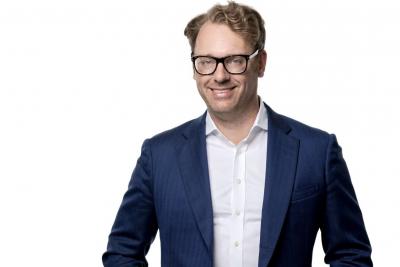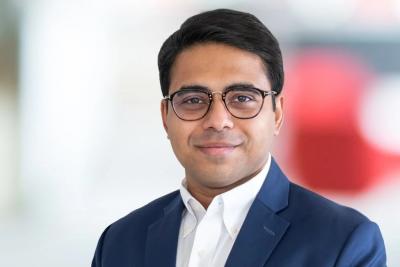Cloudwall’s Serenity brings Institutional-level Risk Management System to the world of Digital Assets

Jun 14, 2023
Cloudwall is a Singapore start-up that presents itself as the world’s most sophisticated digital asset risk platform, delivering that through a new crypto portfolio management and risk management system called Serenity, targeted at active fund managers, mostly hedge funds. Hubbis met with the two co-founders, Kyle Downey, CEO, and Jia Yng Wee, COO, to learn more about the proposition, the progress thus far and the missions ahead.
Kyle first explains that Serenity is designed to monitor, understand, and gain insights into the potential risks in cryptocurrencies in which any manager or any fund might invest, for the managers as well as for the end investors who are putting their money in. Risks must be assessed and managed as professionally as possible, he says, and in traditional fully regulated financial sectors, controls are not only practised widely but also mandated and monitored by the regulators as well.
“We need to instil best practices in digital assets, to ensure the industry develops properly,” he states.
Cloudwall and its vision of best practices ahead
Cloudwall began life in October 2021 in the US, and the Singapore entity was established shortly afterwards. There is today a team of 12 comprising the two co-founders, a CTO, four software engineers, the chief scientist and four quants, spread between the US, Canada, London and Singapore. Kyle himself is located in New York and COO and co-founder Jia Yng Wee oversees the operation from Singapore.
According to his bio, Kyle is a 25-year veteran of application development with almost 20 years of experience on Wall Street at Goldman Sachs and Morgan Stanley, working in New York City, Shanghai and Hong Kong. And Jia Yng Wee’s bio declares over two decades of experience with Global Markets and Private Banking in leading financial institutions such as Nomura, Coutts, Morgan Stanley and Deutsche Bank.
Moving mainstream
“We launched Cloudwall in late 2021 and then began our VC fundraising in early 2022, giving us the resources to begin realising our vision,” Kyle reports.
And that vision, he explains, centres on what he anticipates being the transition from the initial development of digital assets and cryptocurrencies, a lot of which was tech-driven into a more mainstream and bona fide and professional investment ecosystem.
“We are on the cusp of that transition right now, and it was in anticipation of that I left Morgan Stanley to set this up,” Kyle reports. “I have actually been monitoring these developments for many years, and the institutionalisation was inevitable, and we are very much part of that major shift that is going to take place.”
Looking to the future
Kyle explains that his view is that we are in the middle of a transition from the kind of crypto-native period with passionate early innovators when money was being raised from non-institutional sources, such as retail investors, HNWIs, family offices and so forth. And the transition is towards a far more institutional model. He points, for example, to Fidelity recently beginning to integrate crypto into their platform, and to other global financial institutions adopting cryptos at different levels.
“Despite all the challenges in 2022, we have seen this all moving more into the traditional finance mainstream,” he reports. “Actually, the crypto industry has done itself no favours by changing its story over the years, so people are confused as to whether it is digital gold, an inflation hedge, a replacement for fiat currencies, or something else entirely.”
Tokenisation to revolutionise finance and ownership
But he believes that now the market is inching towards a more coherent approach, as tokenisation makes it more comprehensible.
“People are now getting more excited about this as a representation of ownership of any kind of asset, so it could be 1/10,000th of a skyscraper in downtown Tokyo, it could be a bit of a Bitcoin, it could be a bit of a private debt or private equity fund,” he explains. “It is changing the way such assets can be owned and that ownership is verified, and that will change the entire ecosystem over the coming decade, in our view,” he elucidates. “And that is why we are building a risk system and a portfolio management system, because while this activity has been conducted across many different systems thus far, in the future it will consolidate into one way of doing things.”
Seeing things as they are
He says that it is perhaps easiest to think of tokenisation as a form of securitisation of an underlying asset.
“We now have a way to securitise anything in the exact same way, and chop it up and trade it and use all the same tools for anything, any asset class,” he explains. “It is ideal for diversification for portfolio managers or individuals, and we could see trillions of dollars equivalent of such assets by 2030.”
He says that is why larger and larger parts of traditional finance are so excited about it, why, for example, Larry Fink of BlackRock is saying that the biggest trend and disruption in finance is tokenisation of assets. “Traditional finance exponents are now more often taking the longer-term view, as they think it is going to change the fundamental plumbing of finance and asset management.”
Seeing the implications of a new reality
And he goes further, stating that the world is also starting to see tokens as truly another asset class, asserts that are not equities, nor bonds, not traditional securities of any type. He says tokens have qualities of each of those but the ownership is of participation in a network.
“A concrete example of this is a decentralised trading system that is making money off of its trading fees, that has a token that you use for participating in that trading system,” he elaborates. “But you also get compensated as a share of the fees through that token. And it appreciates in value if that token’s network is successful. In this way, Uniswap is an example with its UNI token.”
Disruption is coming, it is inexorable
In short, he states that this all means disruption is coming and more comprehensively than before.
“Asset managers today of any type or scale are going to be disrupted over the next decade by this technology,” he says. “They are going to need different tools, and they are going to be exposed to different risks, which is ultimately why we built Serenity.”
He adds that the implications for global finance are also immense. Decentralised finance, in particular, allows hedge funds to trade with each other, with no need for any bank or brokerage intermediaries, removing a large part of the revenue stream of these institutions.
“That whole business which is a hugely profitable part of these big banks, I think in the coming decade could disappear,” he predicts. “You need to understand these issues and think about how it affects your business model. If you don't, someone is going to eat your lunch. Just simply taking the long-term view that if something is coming in the next decade, which is an existential threat to your business, then you need to focus on and address such issues. The short version of all that? Engage, or risk going out of business.”
For the wealth industry at large
Kyle explains that Serenity is being created and promoted to help all the typical types of parties that might be Hubbis readers, partners, conference delegates and so forth. He reports their very first client was a crypto RIA firm called Arbor Digital, which offers a platform that lets wealth managers allocate into sort of crypto strategies like baskets. They like others Cloudwall will engage with will use their risk models, and the wealth managers will gain additional comfort from the knowledge that they are adopting such a policy and protocols.
Some of these wealth managers and family offices will, he believes, in the future, use Serenity directly themselves. “Not yet, but down the road, actually, we believe we will have an offering that is relevant for family offices as well,” he reports.
He notes that they are also having conversations with ETP [Exchange Traded Products] providers, those building baskets effectively representing indices for example. “Our solutions can help make for more sophisticated baskets of assets that they might be able in the future to trade through an ETP,” he states.
Kyle closes the conversation by noting that he is careful not to become too esoteric in his discussions on these developments, and to keep things as grounded as possible. “These are new developments but in the real world and with dramatic implications ahead,” he states. “I simply advise anyone who is at all interested or potentially involved or who might be disrupted to understand more and engage more. The future is coming…”
Getting Personal with Kyle
Kyle comes originally from Queens in New York City and went to school in New Hampshire and later attended Williams College where he studied Physics and English.
He then spent 17 years at Morgan Stanley, during which time he got to know several people who are now key in Cloudwall, including his co-founder and their CTO back in 2007, right before the outbreak of the GFC. During his Morgan Stanley years, he worked with them in Shanghai and then in Hong Kong, and those years and the relationships he built all led him to jointly create the firm.
He professes to love the world of finance and the hubbub of trading. “For some of the time at the bank, I was on the equities trading floor at 1585, Broadway, right off Times Square. “You could sense the mood of the market from the noise on the floor, the ups and downs and the calmer moments,” he remembers. “It was just a really amazing thing being in the middle of that. I have loved finance for a long time, even though I don't have an economics background, don't have an MBA; I learned it all on the job.”
As a business founder, he is working all the hours and days he can find. “I do not have much time for hobbies and actually find my work to be the hobby I am most passionate about,” he says. “Outside that, I am quietly at home with my wife of 22 years and with our 16-year-old and greatly missing our 19-year-old, who recently headed off to college.

Co-founder, CEO at Cloudwall

More from Kyle Downey, Cloudwall
Latest Articles






